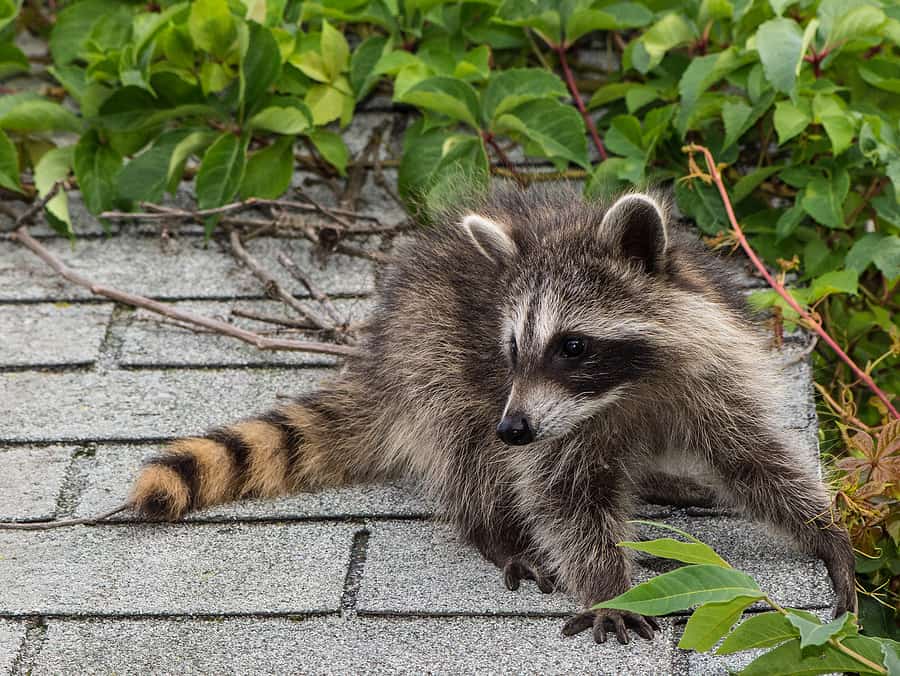READY TO GET STARTED?
REQUEST A FREE ESTIMATE
Fill out the form below or call (888) 466-7849 for a free, no-obligation estimate.

Now that winter is here, it is time to make sure your attic is not harboring wildlife from the cold. The most common pests that find refuge in attics are racoons, squirrels, bats, birds, and mice. These pests can cause severe damage to your home and pose a significant threat to your health.
There are many ways for wildlife creatures to get into your home. The most obvious ways are through vents and construction gaps. These can sometimes be unavoidable, since rodents can squeeze through cracks as small as half an inch wide. Some of the pests can be taken care of with DIY pest control, but some do need professional attention. Bats are a pest that you should not take care of yourself. They can carry rabies and some species are protected.
The damage that can be caused in your attic can be anything from chewed wires to disturbance to your insulation, which can end up being costly for you. There are many ways to implement wildlife control in your attic. Here are a few of our favorites below:
If you believe that you have wildlife in your attic, consider calling your local pest control company to help locate entry points, safely remove them, and prevent them from entering your house in the future.

Summer is in full-swing here in Georgia, the heat is rising, and the bugs are coming out to play (bite!). Here are 5 common summer pests to be on the lookout for and tips on how to prevent and get rid of them:
Chiggers (sometimes referred to as mites or red bugs) are so small they’re hard to spot. But you’ll know you’ve been bitten after an itchy, uncomfortable rash develops. While they don’t pose serious health risks, they can ruin outdoor fun and leave behind irritated skin that you’ll want to scratch. To prevent chigger bites this summer, limit time spent in areas prone to chiggers – woods, grassy areas, near lakes, ponds, streams & rivers – keep arms and legs covered when outside, and wear insect repellent with DEET. If you get bitten by chiggers (most commonly on legs and waist with red, itchy skin), take a bath or shower immediately to get rid of chiggers that may remain on your body, wash the clothes you were wearing in hot water, and then apply a itch-relief lotion or ointment to the affected areas – like hydrocortisone or calamine.
Mosquito bites, on the other hand, can be more serious since they carry multiple diseases, viruses, and parasites. The best way to minimize your risk of contracting mosquito-born illnesses like Zika, encephalitis, West Nile, dengue fever, and malaria (some of the most common) is to prevent mosquito bites by limiting travel to well-known, affected areas, keeping arms and legs covered in light-colored, loose clothing when outdoors, wearing insect repellent with DEET and reapply often, and controlling mosquitoes around your home with professional mosquito treatments. You can also reduce mosquitoes by eliminating breeding sites – any areas with standing water.
Fire ants can be dangerous for the whole family, including pets. They’re aggressive and cause painful bites, often with severe allergic reactions, which can be especially harmful to small children and pets. The best way to prevent and control fire ants around your home is with regular yard treatments, specifically targeting fire ant mounds, by a professional exterminator. Treatments are usually applied in granular form and get rid of fire ants in as little as 72 hours.
Bees can be a threatening summer nuisance and often cause painful stings if threatened. One of the most common summer bees is a paper wasp. Paper wasps will form nests on or in almost any horizontal surface, resembling an umbrella attached by a small stem. They vary in color but can be brown and yellow striped or red with blackish wings. They’re most likely to sting when their nest is disturbed, which can happen accidentally when nests are hidden. Paper wasps can be highly aggressive and cause severe pain and allergic reactions so it’s recommended to leave nests undisturbed if posing no serious threat or contact a bee exterminator to access the situation.
Ticks are dangerous for both humans and animals as they spread infectious diseases – like Lyme disease and Rocky Mountain spotted fever, through bites. Take steps to protect yourself from tick bites while outdoors by avoiding areas where ticks are prevalent, like wooded areas and in tall grass, and use an insect repellent with DEET. You should also treat pets with tick repellent products to reduce their risk of tick bites.
Click here for tick removal tips from the CDC.